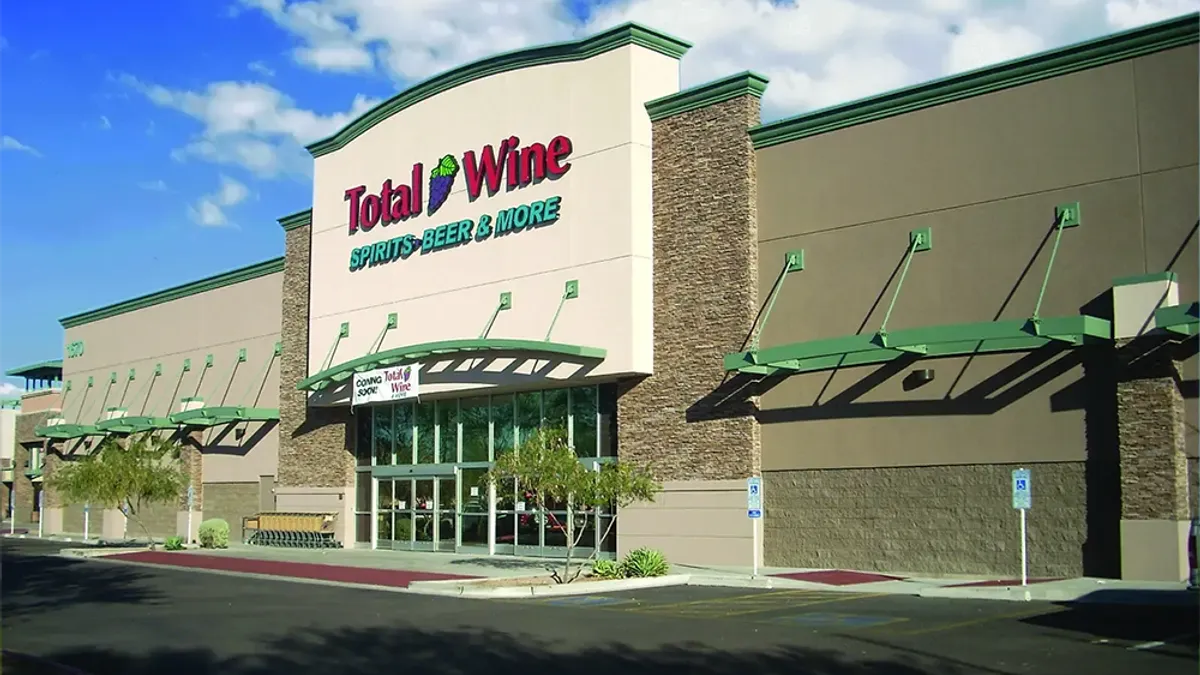Dive Brief:
- The Federal Trade Commission has asked a U.S. district court in Virginia to compel Total Wine, one of the largest wine and spirits retailers in the United States, to comply with a civil investigative demand and put an end to its stonewalling tactics.
- “A [CID] issued by the FTC is not a voluntary request,” Henry Liu, director of the FTC’s competition bureau, said in announcing the agency’s petition.
- Total Wine told Legal Dive it made a good-faith effort to comply. We “agreed to produce more than 1 terabyte of data and other records ... and had agreed to produce millions more when discussions with staff broke down ... over a few additional categories of documents which the company believed, in good faith, were unrelated to the FTC’s investigation or otherwise objectionable,” the company said in an emailed statement.
Dive Insight:
The FTC said it’s been trying since February to get information from the retailer to help it decide whether the largest wine and spirits distributor in the U.S., Southern Glazer, has been giving advantages to big retailers in violation of competition laws.
The agency sent a CID to the 10 largest retailers that Glazer works with, all of which with the exception of Total Wine complied, according to the FTC’s October 20 petition.
Total Wine operates more than 250 stores in 28 states, generating some $5 billion in annual revenue. In its initial response to the agency, according to the FTC, the company said it objected to the demand and, with the exception of some documents, didn’t provide what the agency was seeking.
After back-and-forth between the two sides, the company petitioned the FTC to limit the CID on the grounds it was too broad and included confidential information, among other things. The agency denied the petition and ordered compliance.
“No other retailer filed a petition to limit or quash its respective, nearly identical CID,” the FTC said.
The agency said it continued to seek cooperation from the company on identifying custodians, refining word searches and addressing other concerns but the company dug in further.
“Total Wine stonewalled every such attempt [to confer] and refused to schedule a conference with FTC staff in advance of the Commission-ordered compliance deadline,” the agency said.
The company then hardened its position on custodian information, the FTC said, after earlier indicating it wouldn’t object to negotiating with the agency on what custodial information would be appropriate.
“Contradicting its prior position before the Commission, Total Wine’s counsel flatly rejected FTC staff’s efforts to confer on custodians and instead asserted ‘we do not think custodians are necessary for Total Wine to conduct a reasonably diligent search [in] this case,’” the agency said.
To meet the compliance deadline the FTC set after denying Total Wine’s petition, the company delivered another batch of documents and said it had met its responsibility, although it didn’t certify to compliance.
The agency said the latest batch of documents wasn’t anything close to what was being sought.
“Total Wine unilaterally narrowed the definitions of “Distributor” and “Relevant Products,” declining to produce certain data relating to any entity other than Southern,” the agency said. The company also “refused to search for or produce any responsive internal or external email communications or other documents from any employee’s custodial files.”
The agency told the company it was in default and listed the information it still needed, but the company said it was done unless the FTC dropped its request for custodial material.
“Total Wine ignored the interim deadlines set in the FTC’s proposals, rejected … proposed keyword searches without offering any suggested modifications or counterproposals, and declared that it would make no additional productions unless and until FTC staff waived any requirement that Total Wine produce from any custodian’s files or internal emails,” the agency said.
That’s not how Total Wine sees it. "We stated our willingness to continue our discussions toward an amicable resolution of this matter,” the company said in its email statement. “We are disappointed that the FTC declined our offer to produce additional records and chose instead to pursue this matter in the courts. We intend to vigorously defend our legal rights on this matter.”
In its petition, the FTC asked the court to give the company 20 days to comply.











